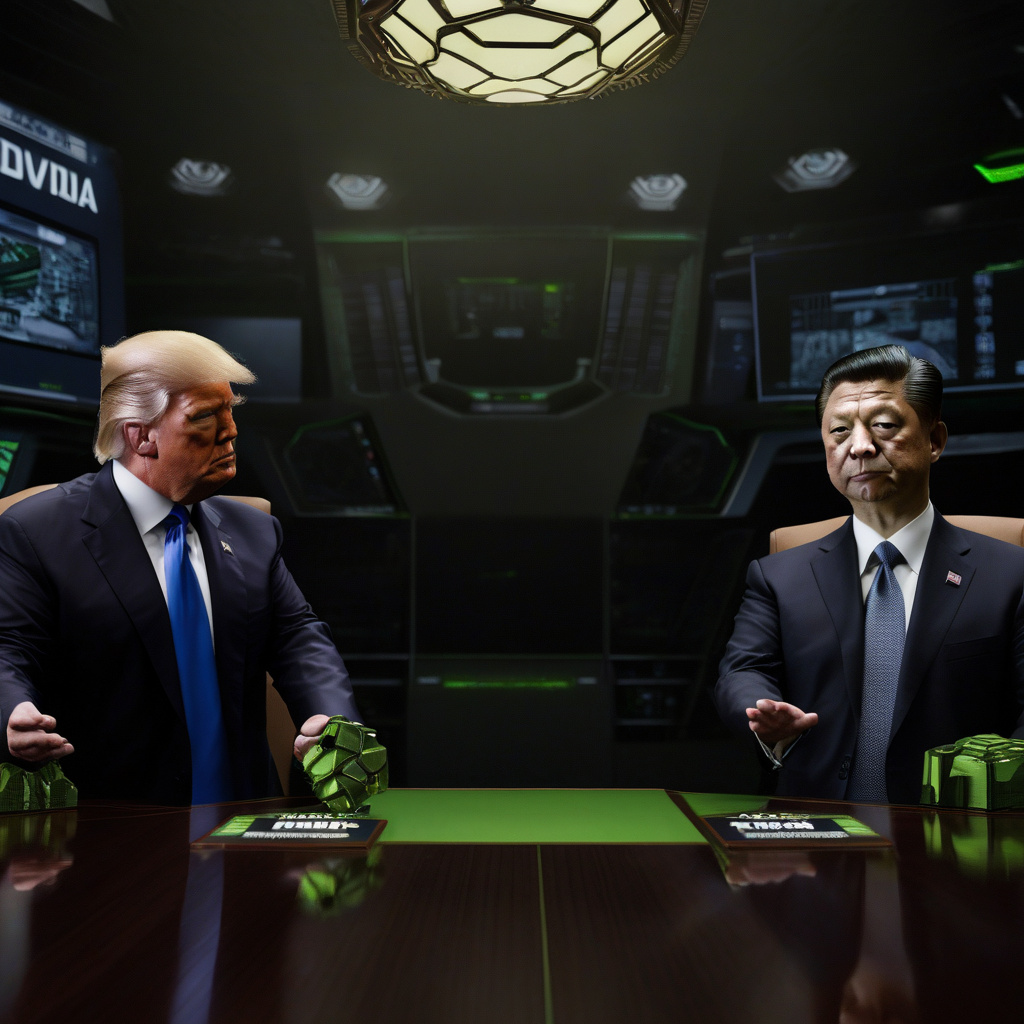Trump’s Nvidia Deal with China: A Risk to National Security?
In a surprising move that has raised eyebrows and concerns among experts, President Trump recently approved a deal that allows Nvidia, a leading American technology company, to acquire Arm Holdings, a British semiconductor company with significant ties to China. This decision marks a departure from traditional US national security policy, which typically maintains strict export controls on sensitive technologies.
The acquisition of Arm Holdings by Nvidia has sparked a debate about the potential national security risks involved in allowing a major American technology company to have control over a company with deep roots in China. Arm’s technology is widely used in mobile devices, servers, and other devices around the world, including in China, where it has a strong presence. This deal could potentially give China access to sensitive technologies and intellectual property that could be used for military purposes or to gain a competitive edge in strategic industries.
One of the main concerns raised by critics of the deal is the risk of technology transfer to China, a country that has been identified as a strategic competitor of the United States. By allowing Nvidia to acquire Arm Holdings, the US government is essentially giving a green light to the transfer of critical semiconductor technology to a company with ties to China, which could have serious implications for national security.
Furthermore, the deal could also have broader implications for the global semiconductor industry. Arm’s technology is widely licensed to other companies around the world, and there are concerns that Nvidia’s ownership of the company could lead to restrictions on the availability of Arm’s technology to competitors. This could stifle innovation and competition in the industry, ultimately harming consumers and limiting technological progress.
In response to these concerns, some experts have called for greater scrutiny of the deal and have urged the US government to consider imposing conditions or restrictions on the acquisition to mitigate the potential national security risks. However, it remains to be seen whether the Trump administration will take any action to address these concerns, given its track record of prioritizing economic interests over national security considerations.
The approval of the Nvidia-Arm deal highlights the complex challenges and trade-offs involved in regulating the global technology industry in an era of increasing geopolitical tensions. As the US seeks to maintain its technological leadership and protect its national security interests, policymakers will need to strike a delicate balance between promoting innovation and competition and safeguarding sensitive technologies from falling into the wrong hands.
In conclusion, Trump’s unexpected approval of the Nvidia deal with China has raised serious national security concerns and highlighted the need for a more nuanced and strategic approach to regulating the global technology industry. As the US grapples with the implications of this deal, it will be crucial for policymakers to carefully consider the potential risks and benefits and take appropriate action to protect America’s interests in an increasingly competitive and uncertain world.
national security, technology, Nvidia, China, Arm Holdings











